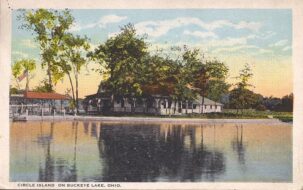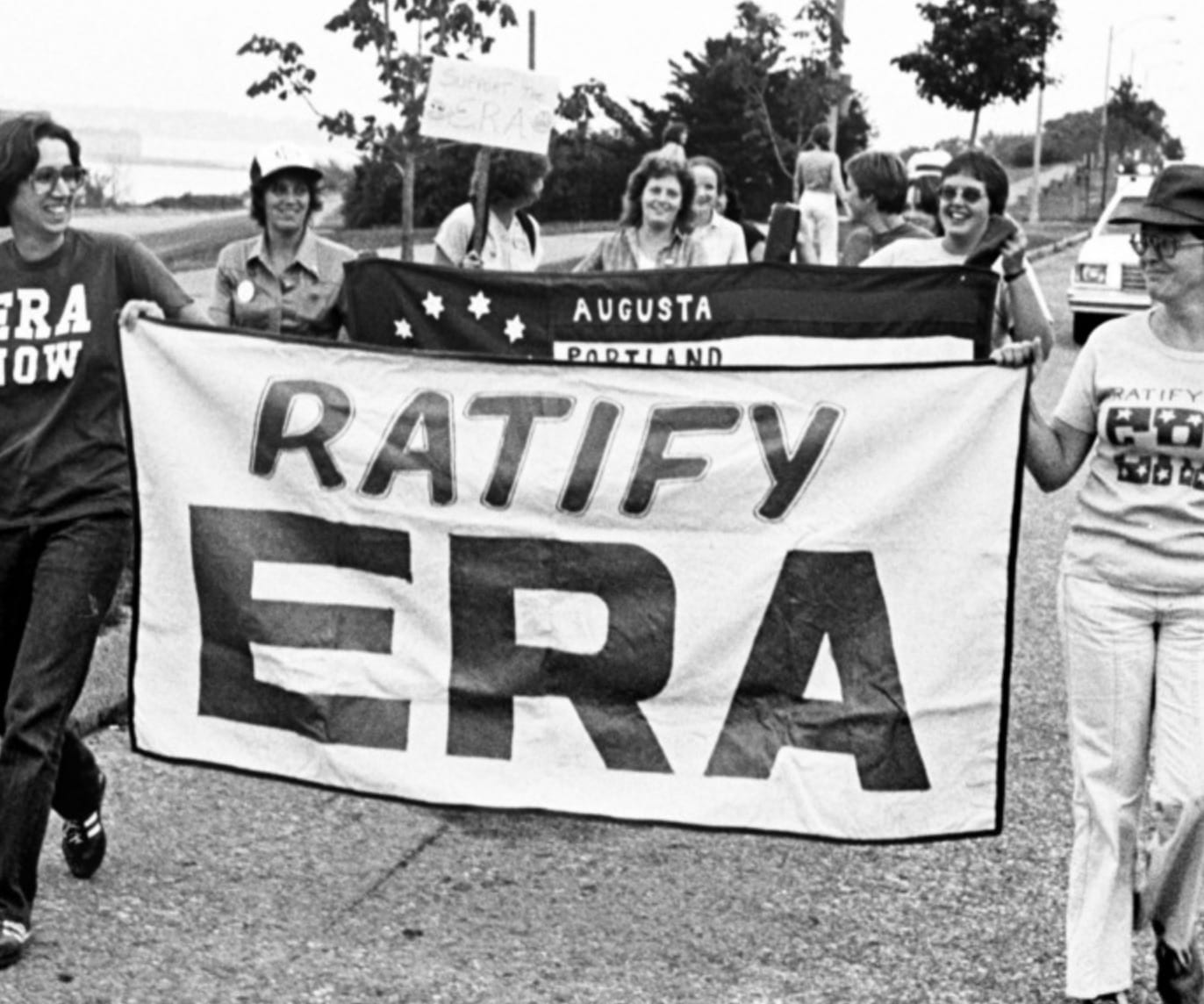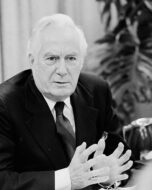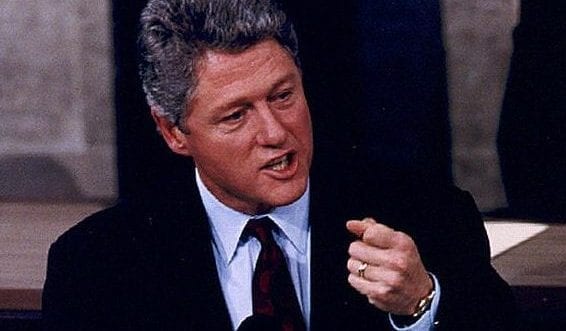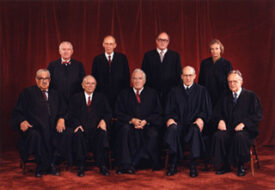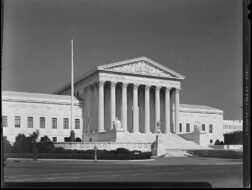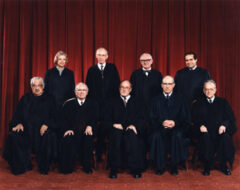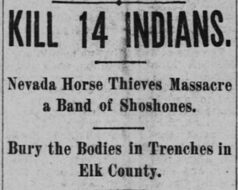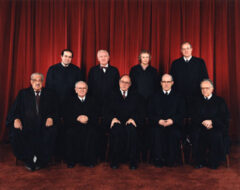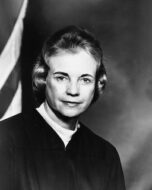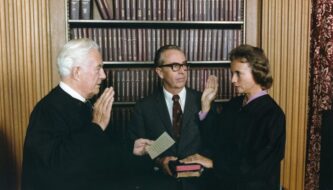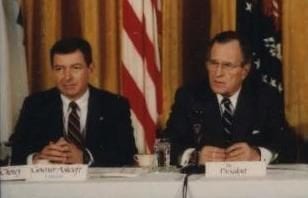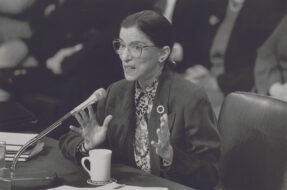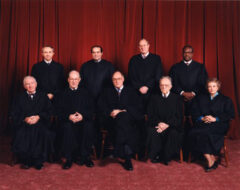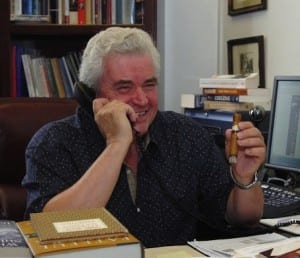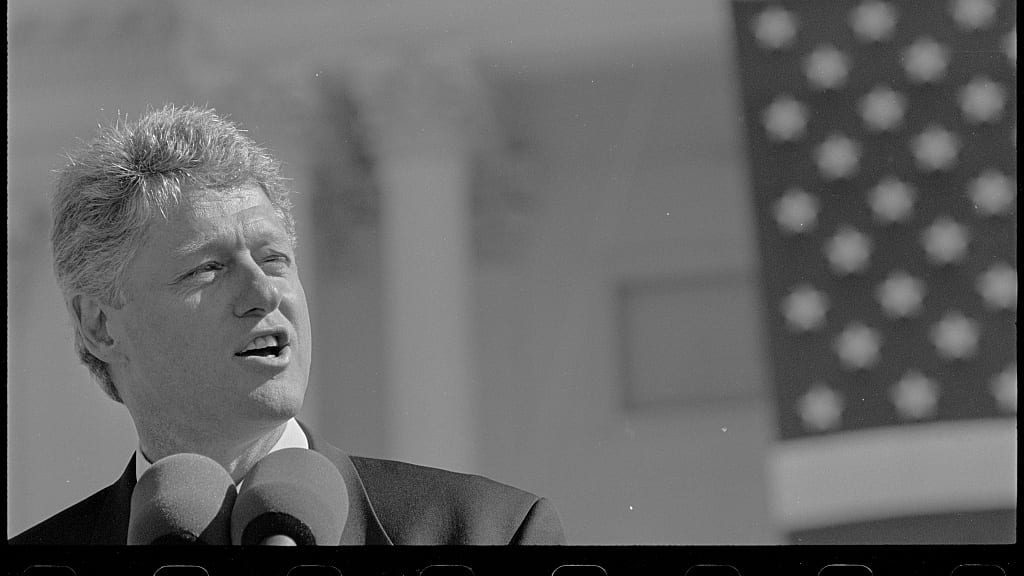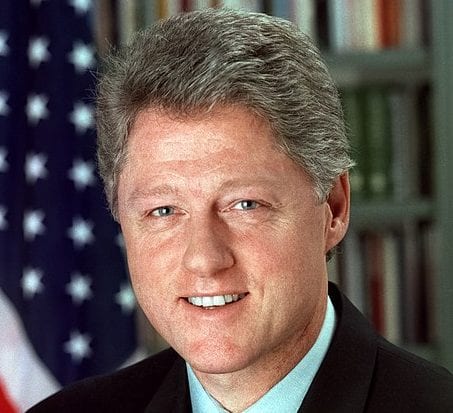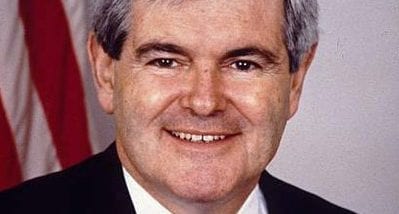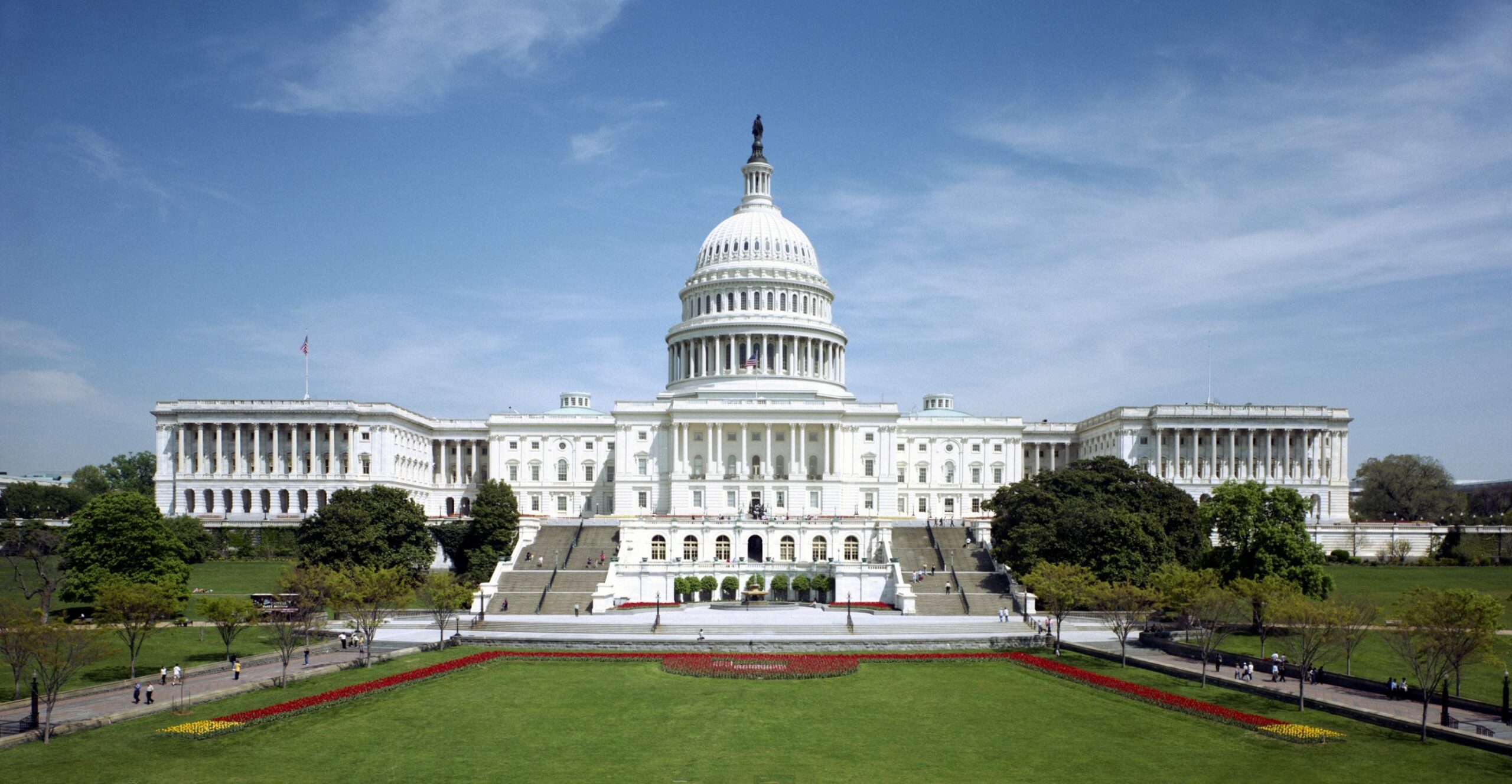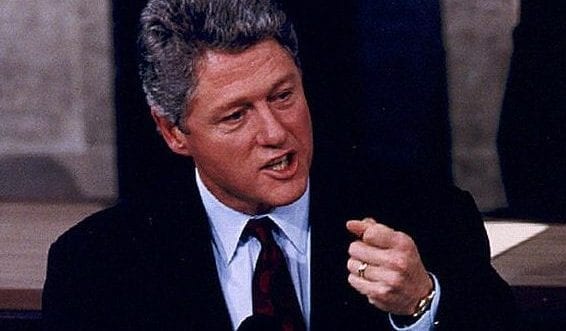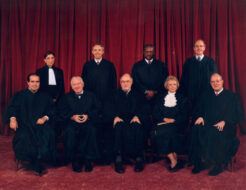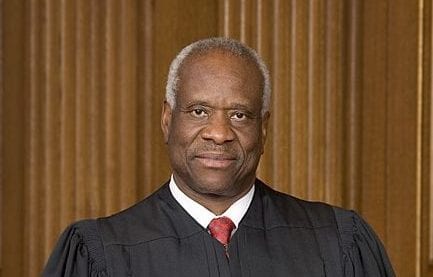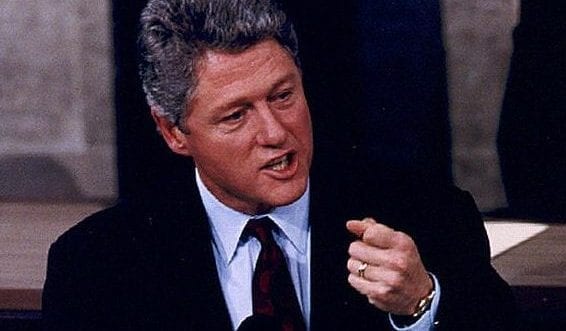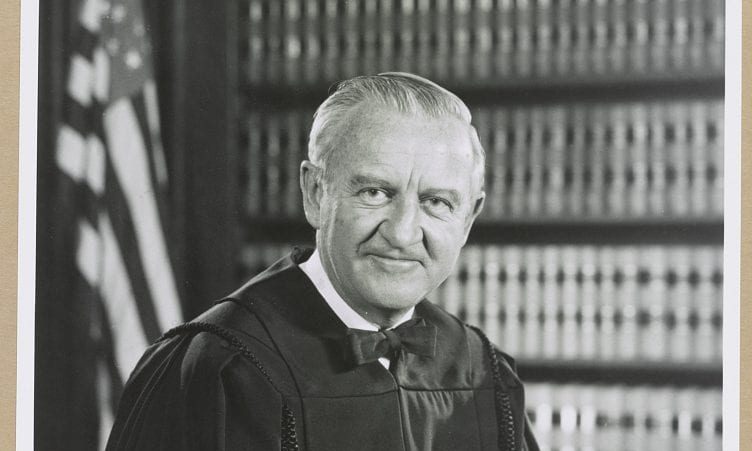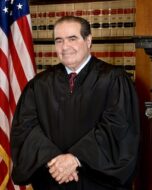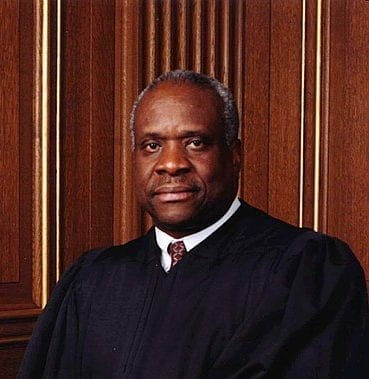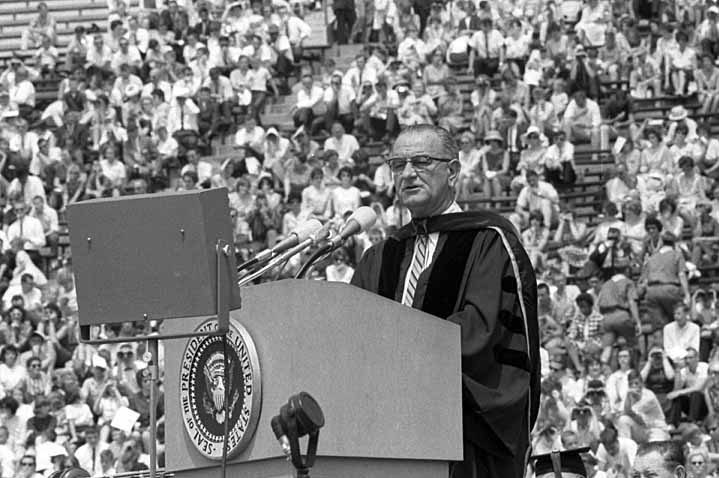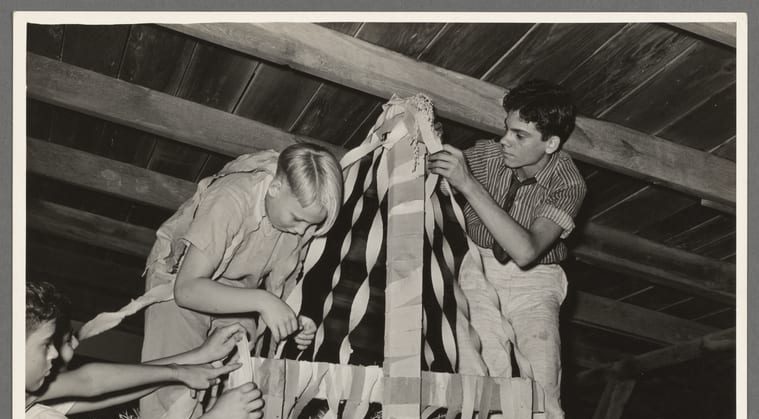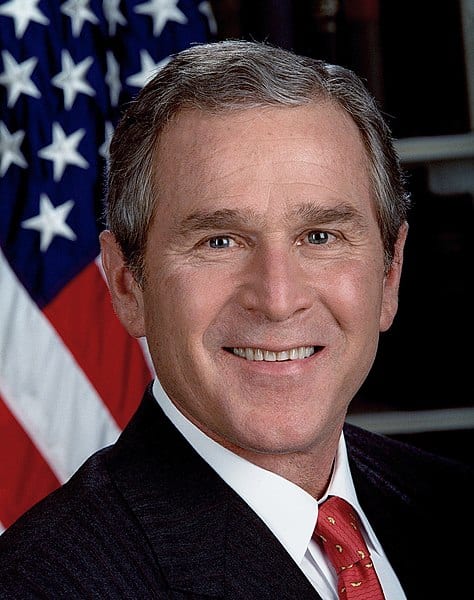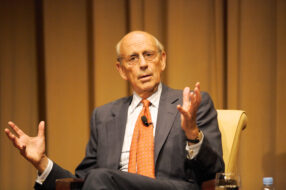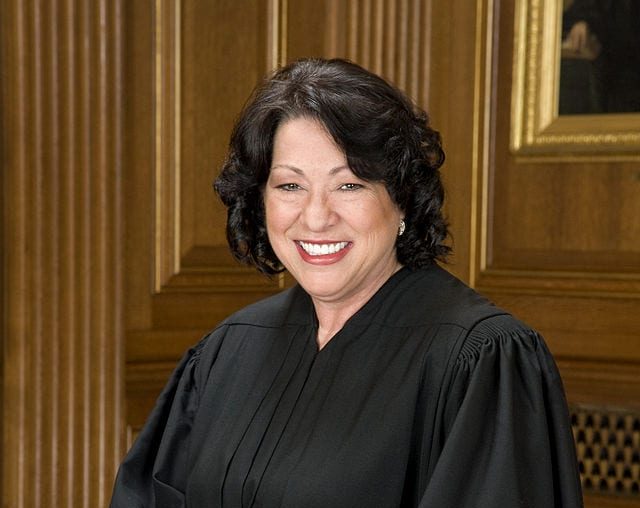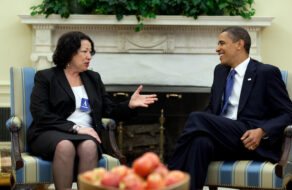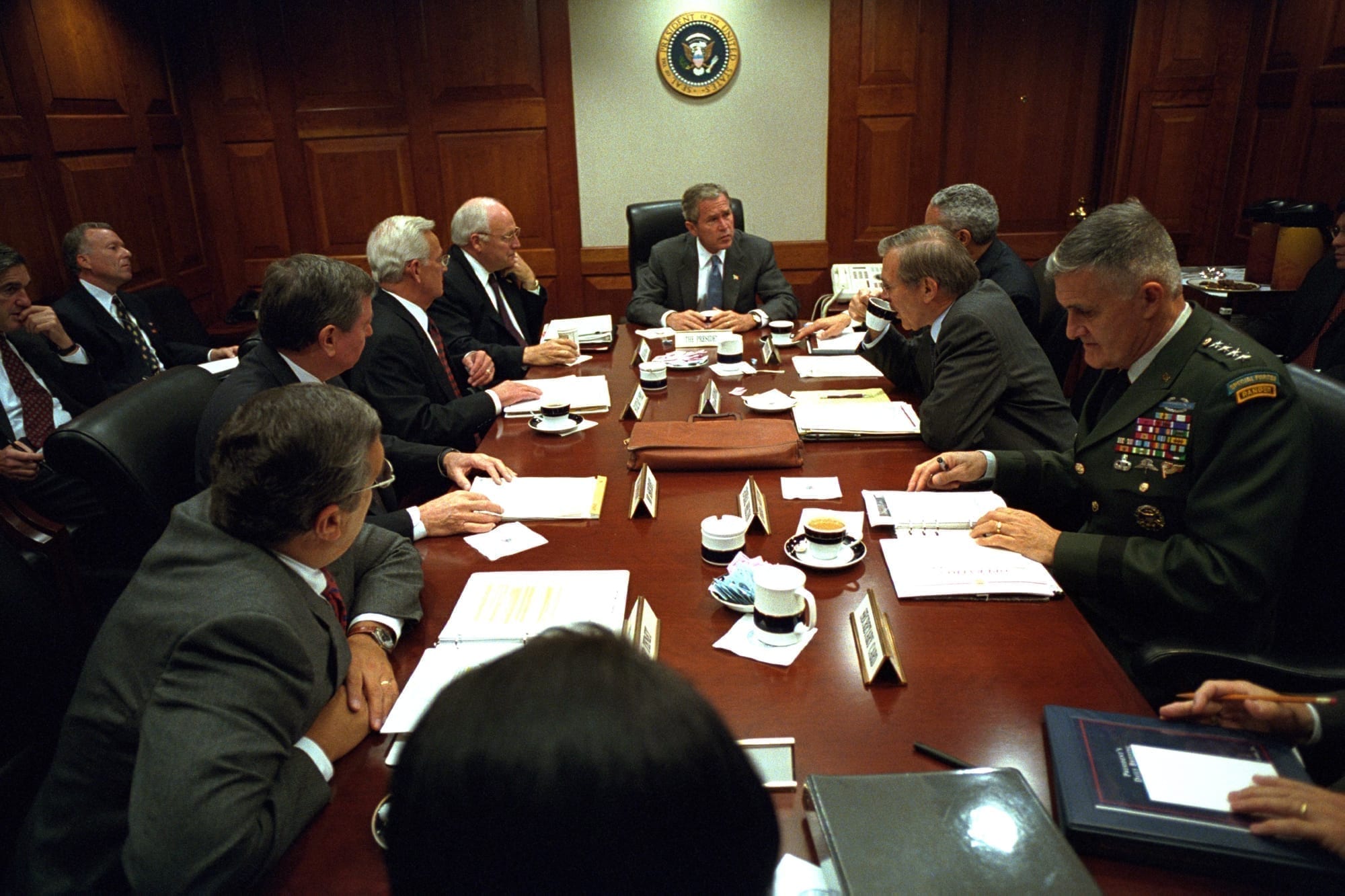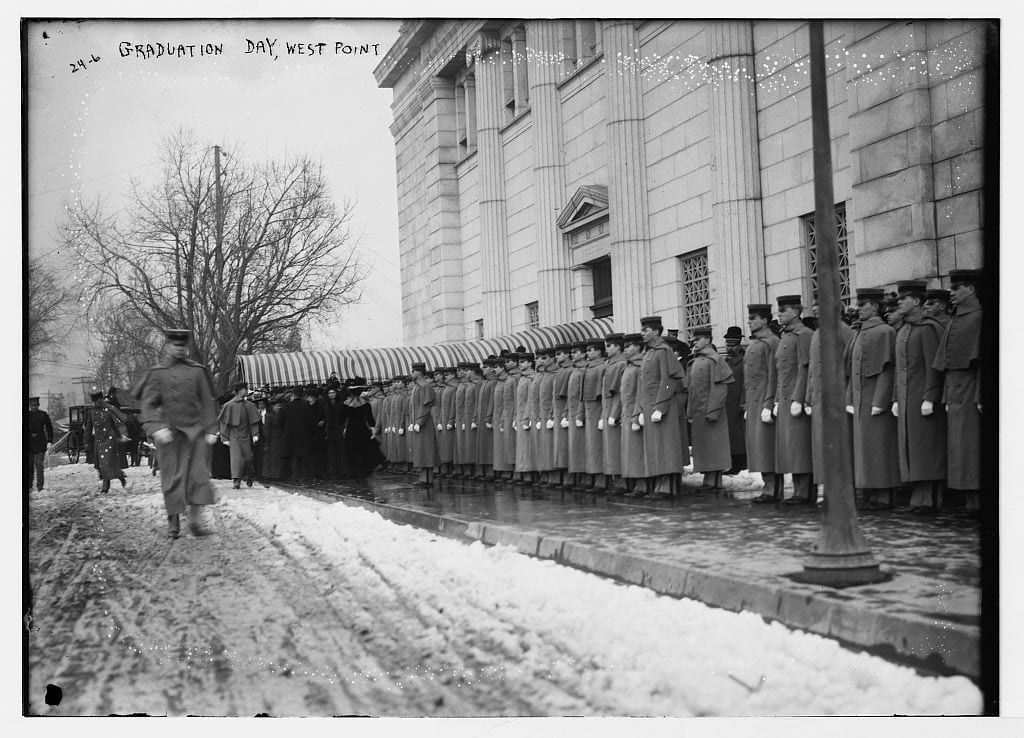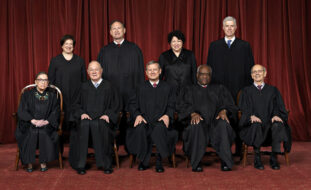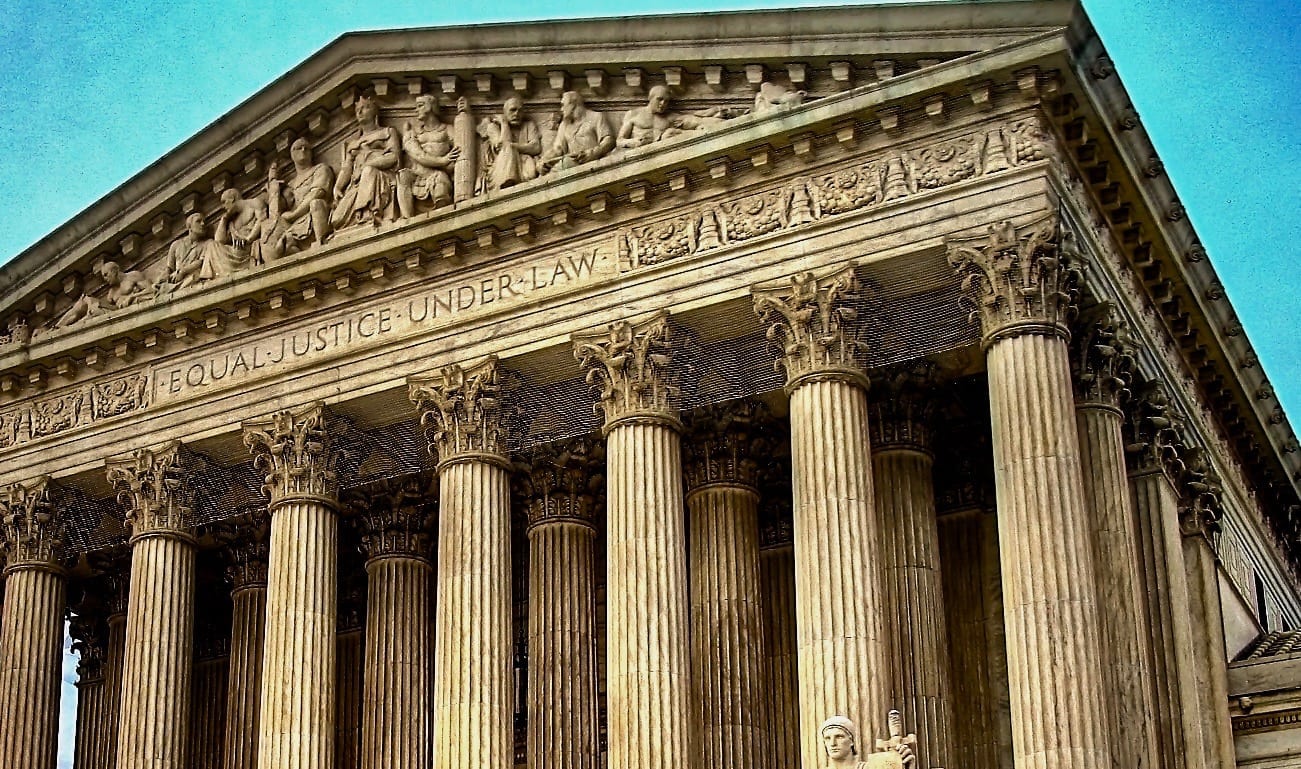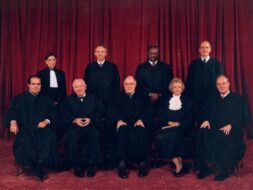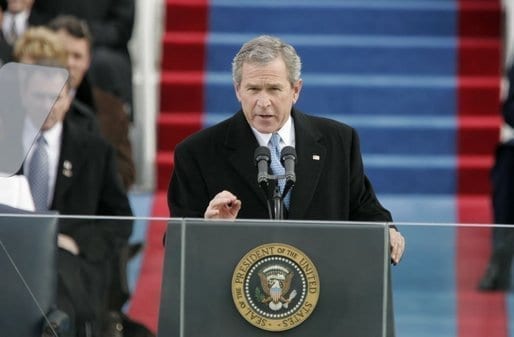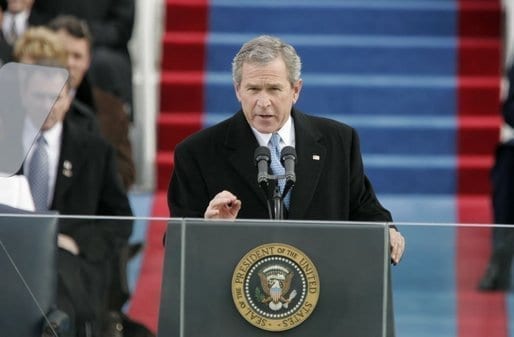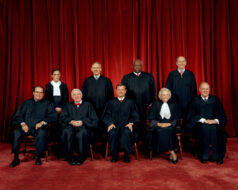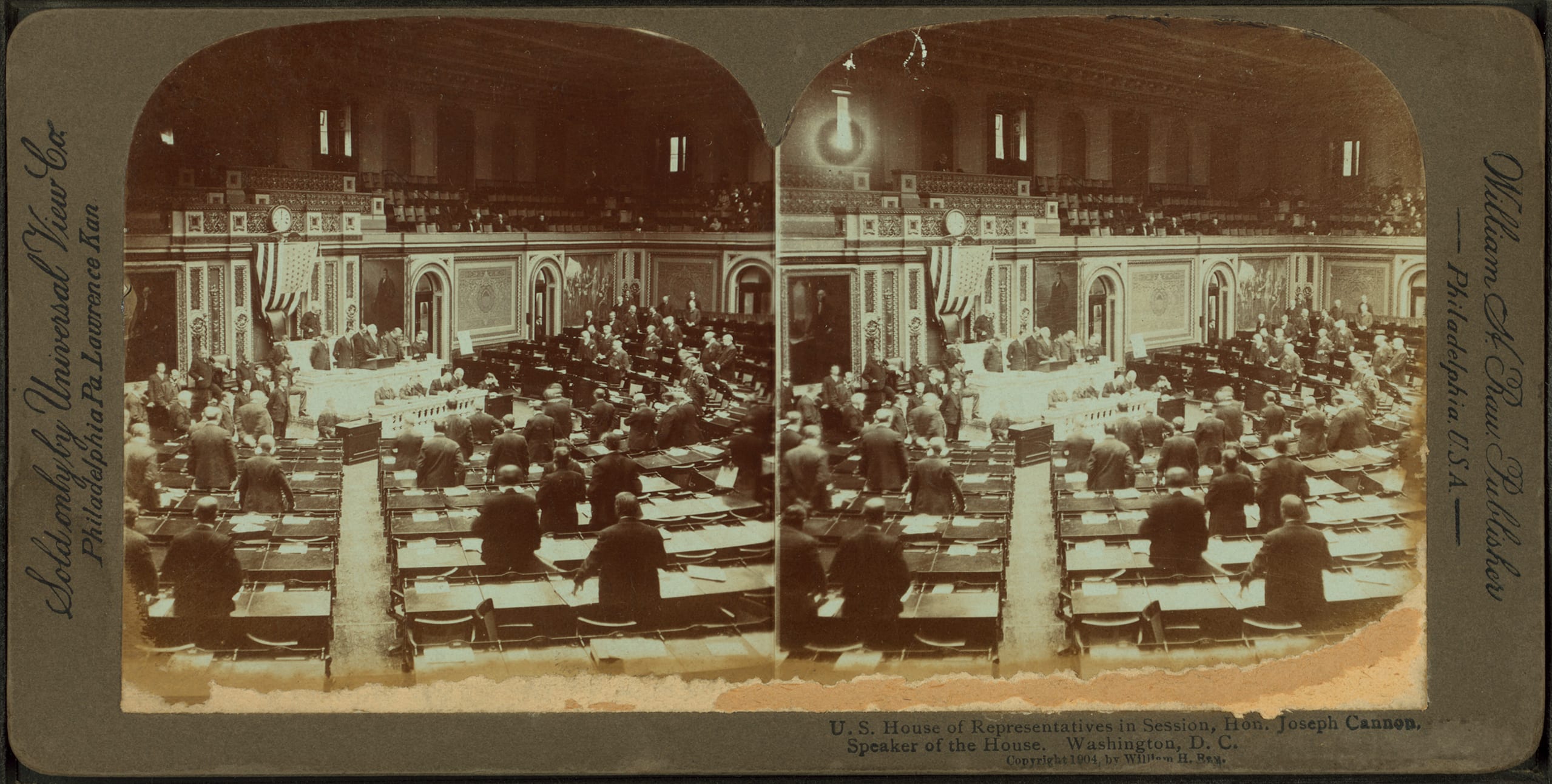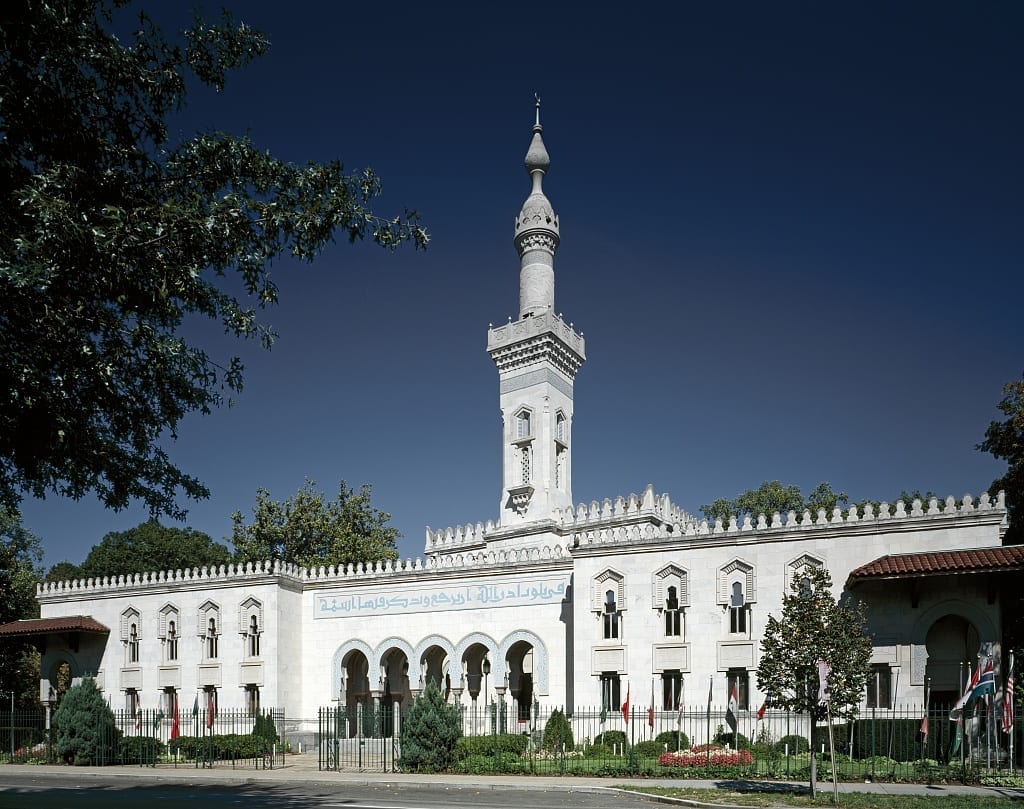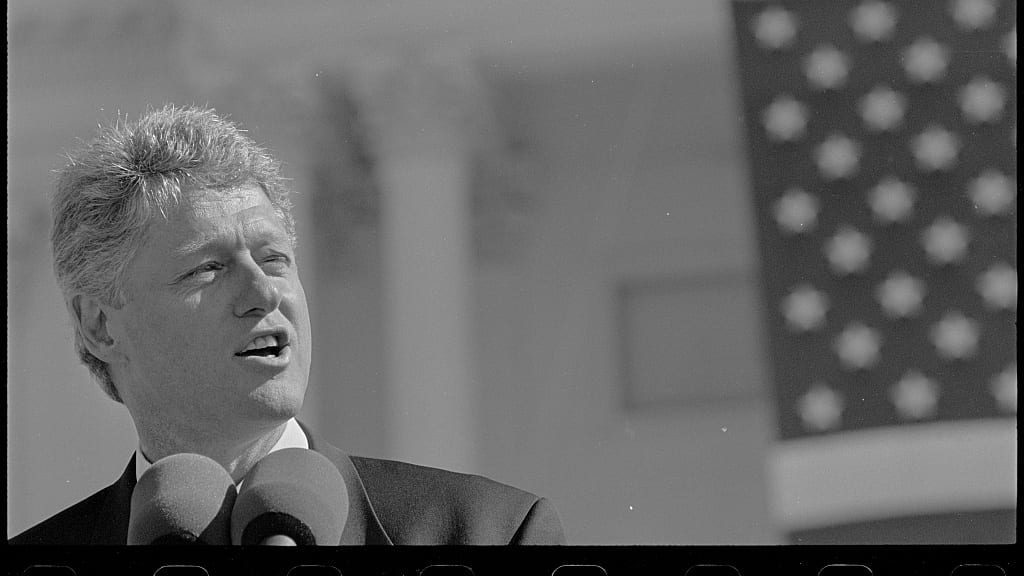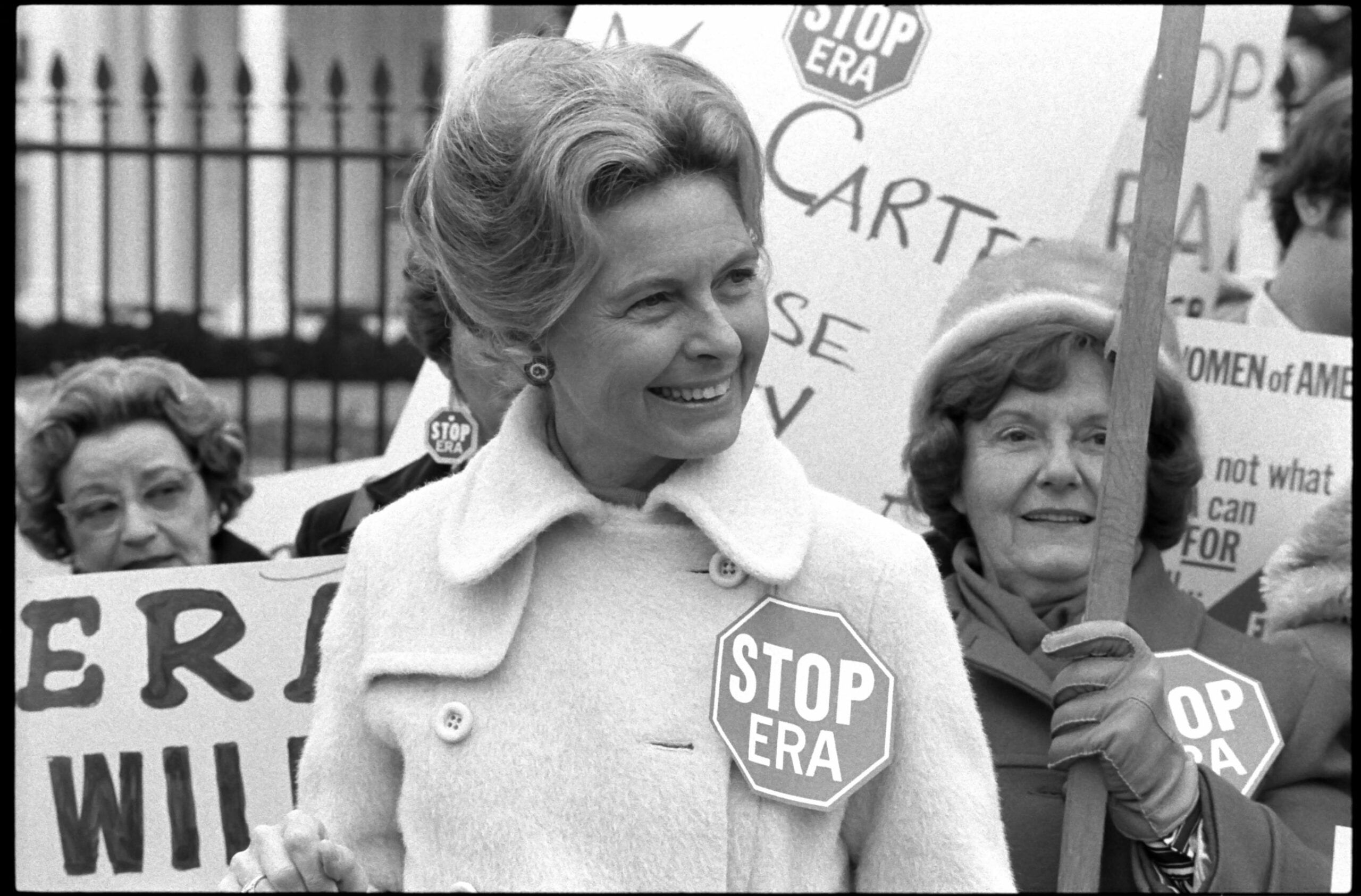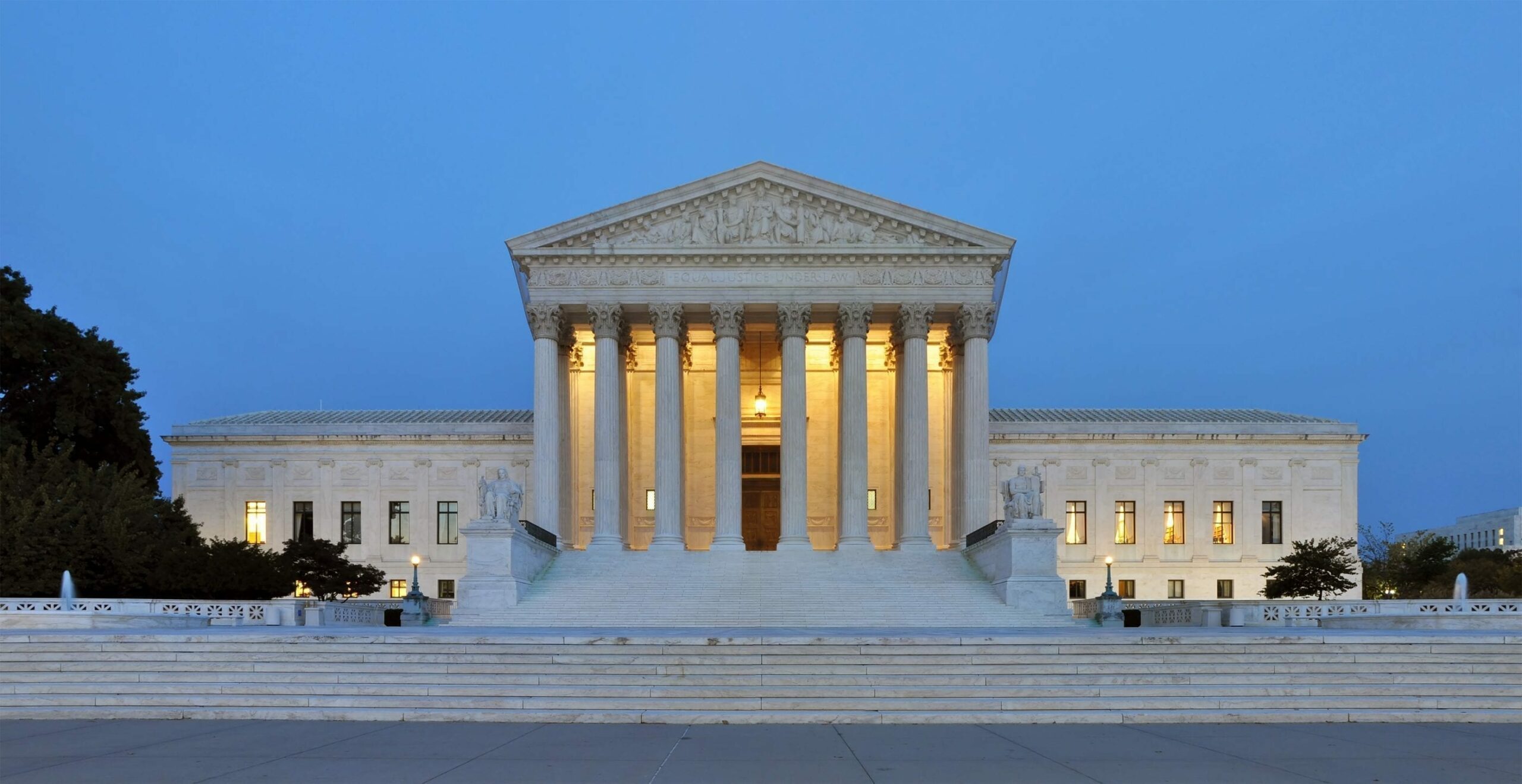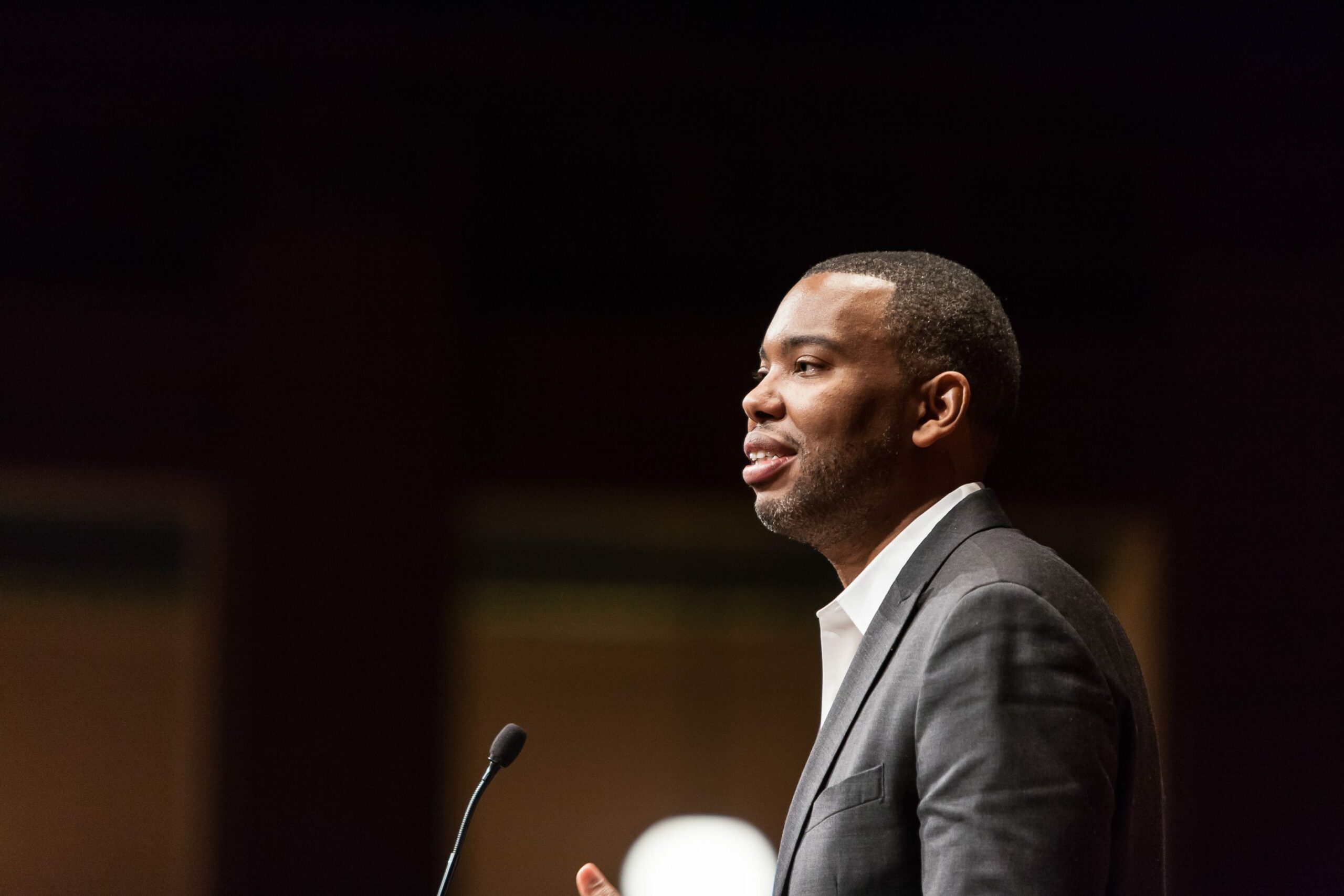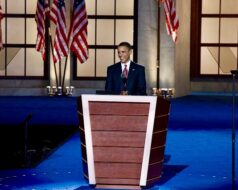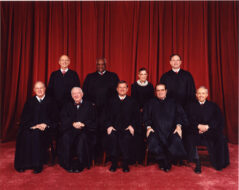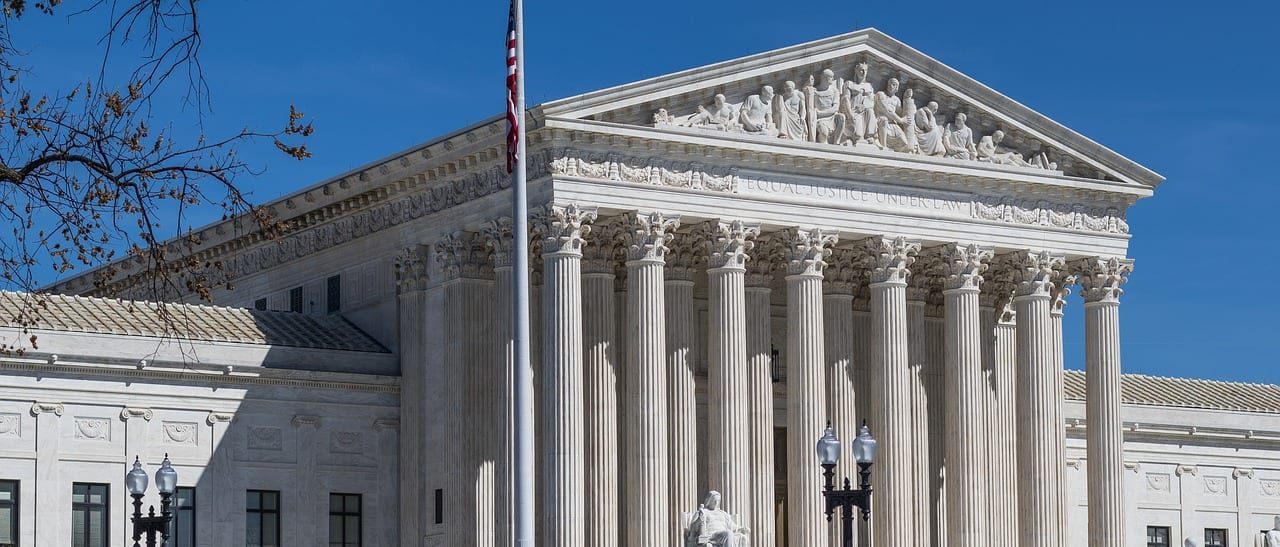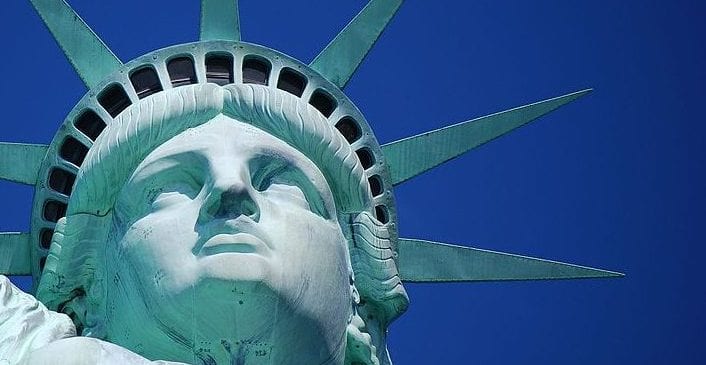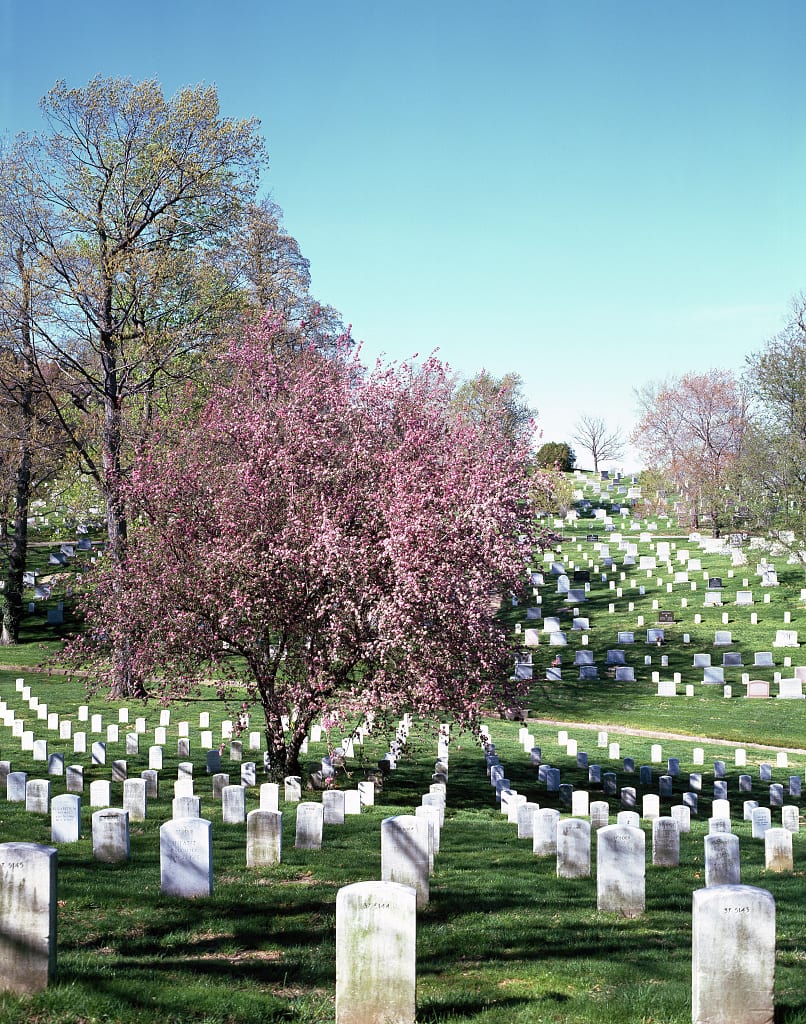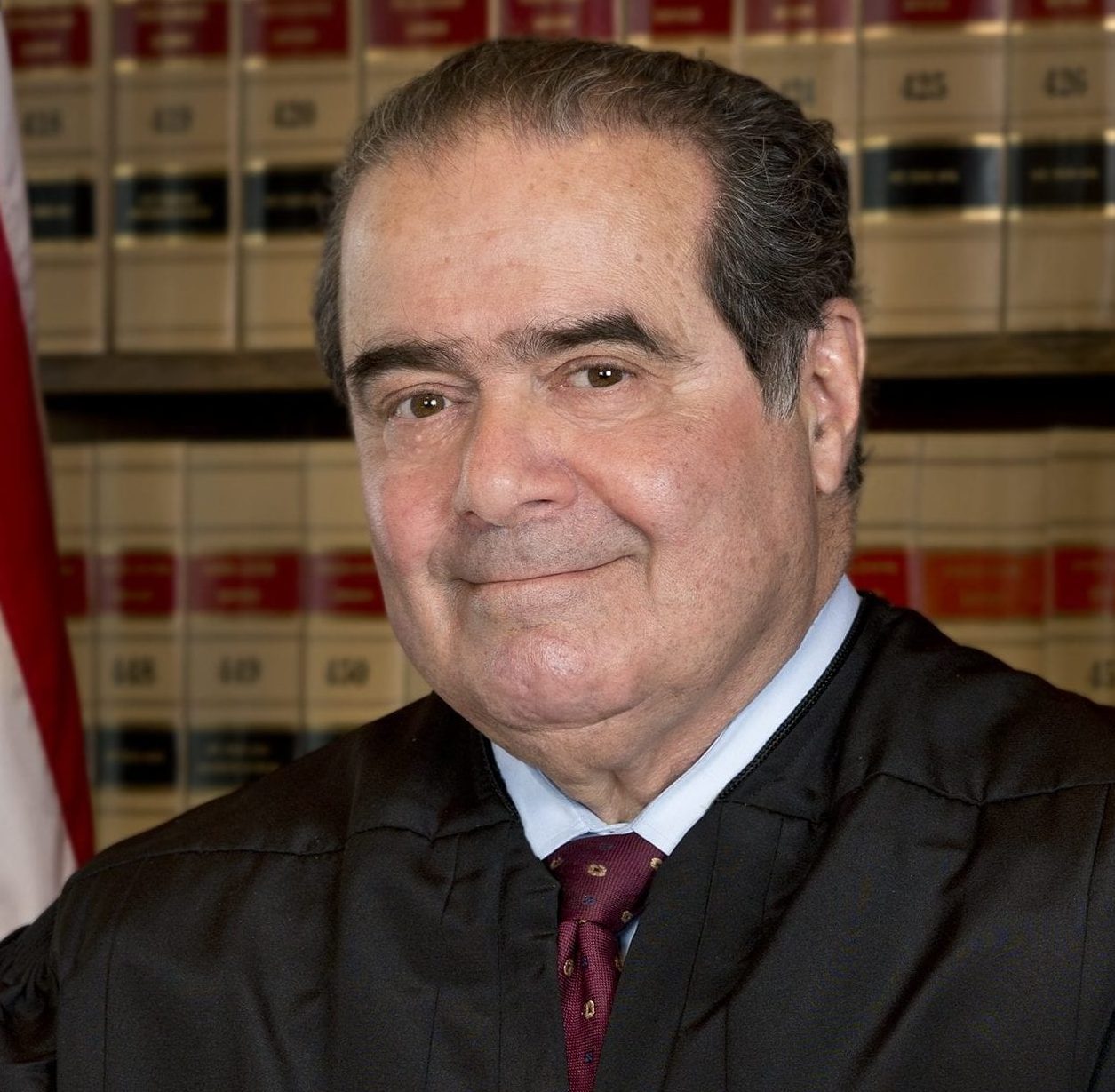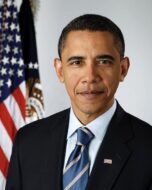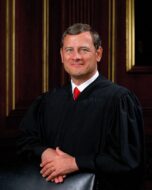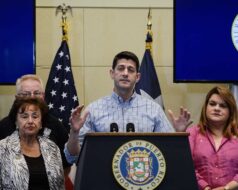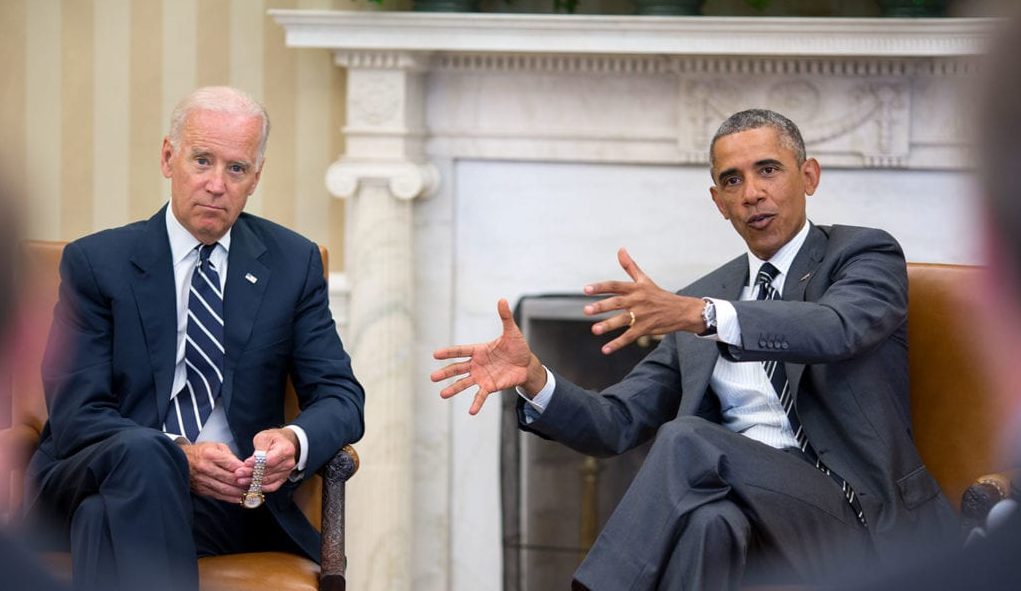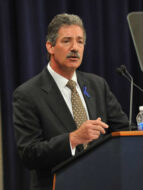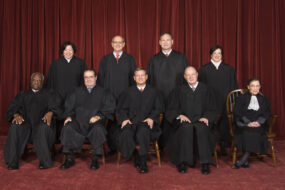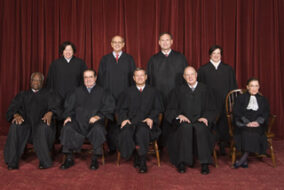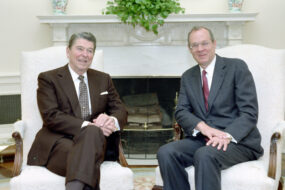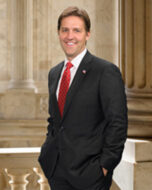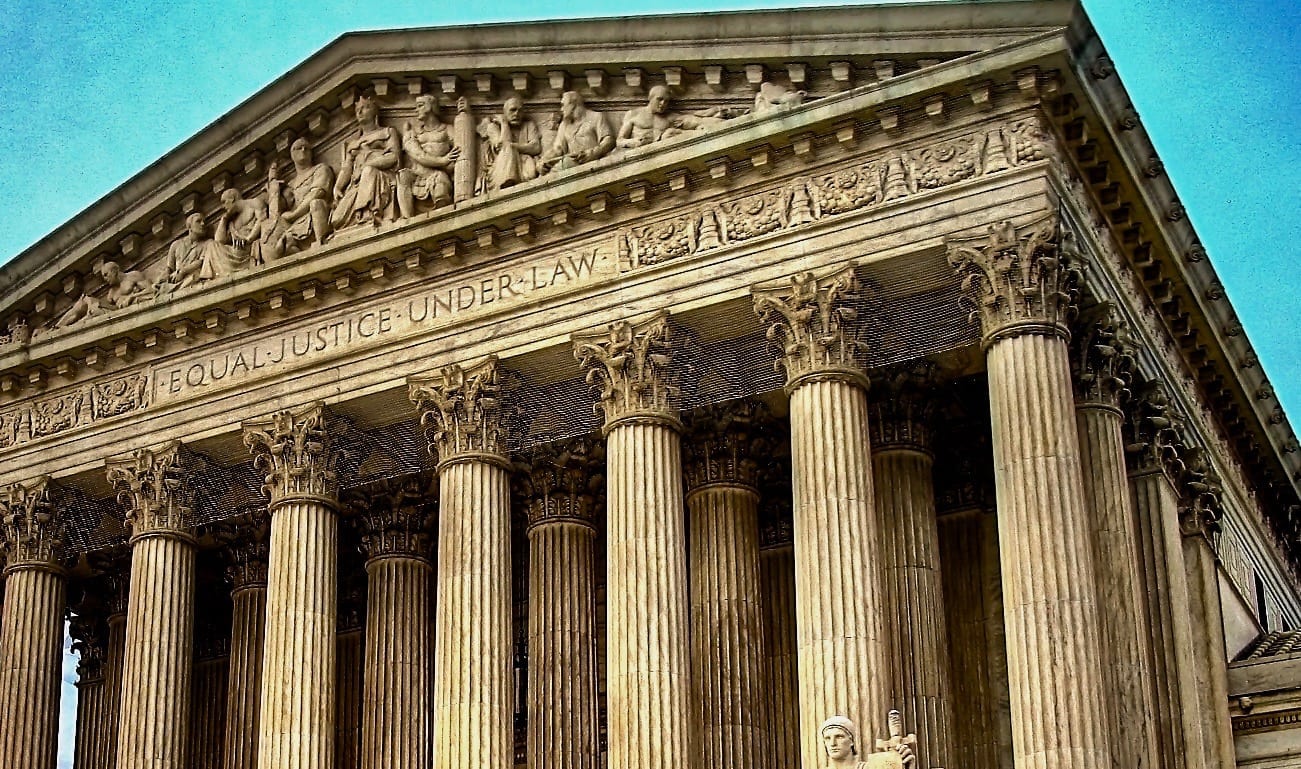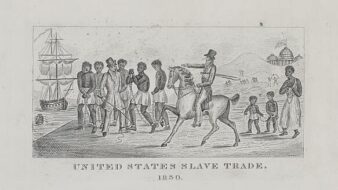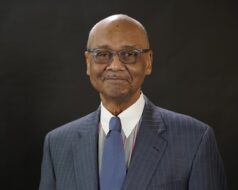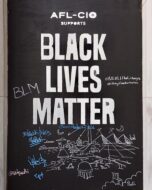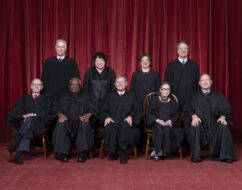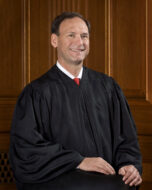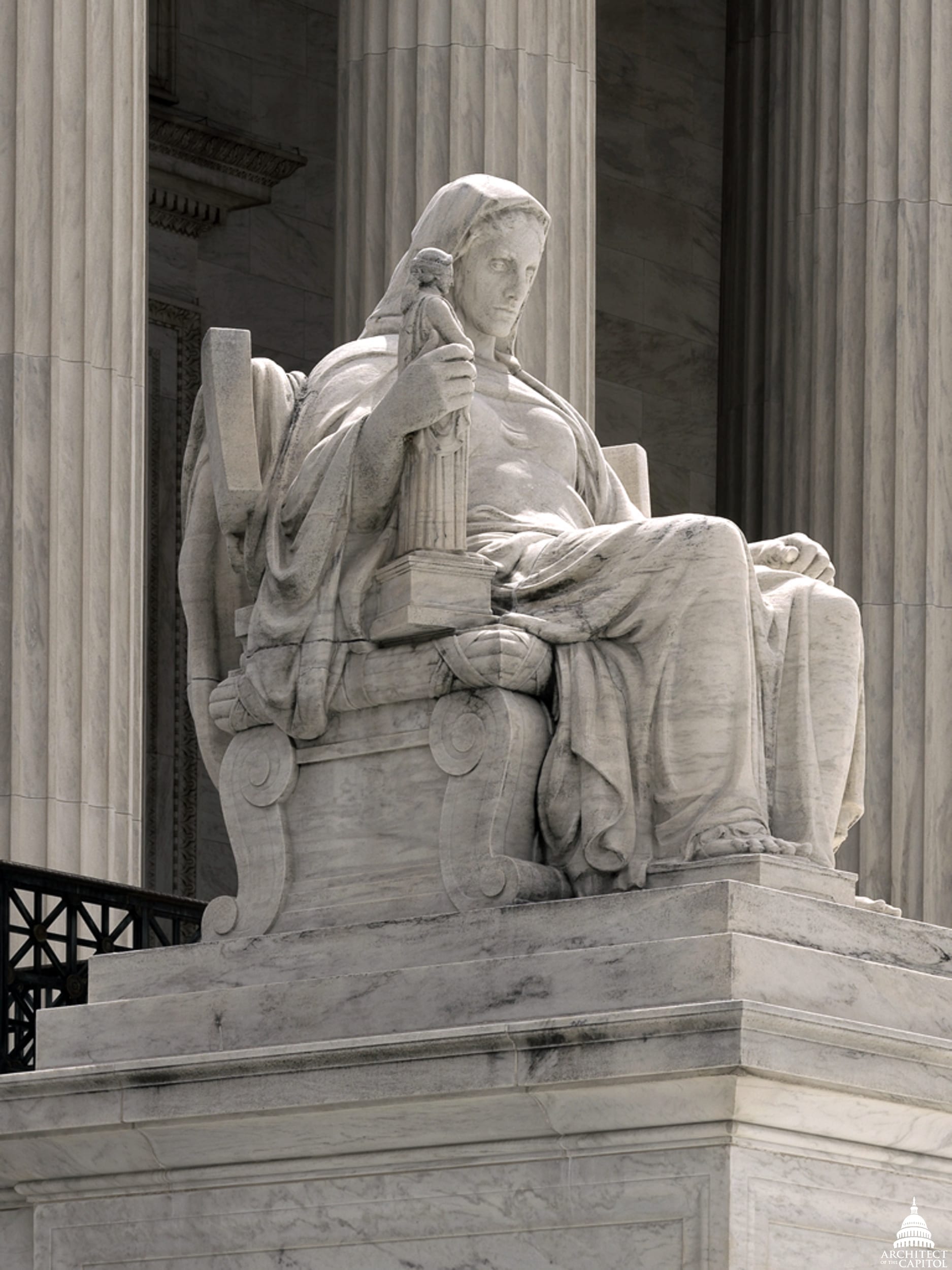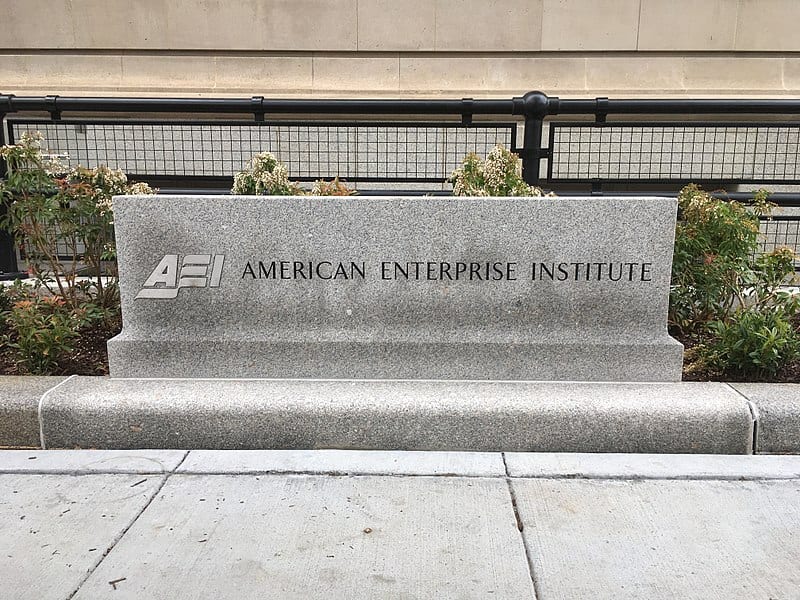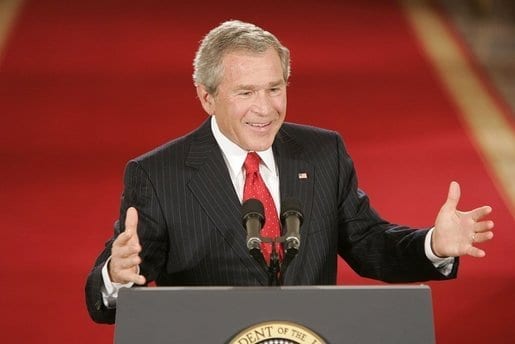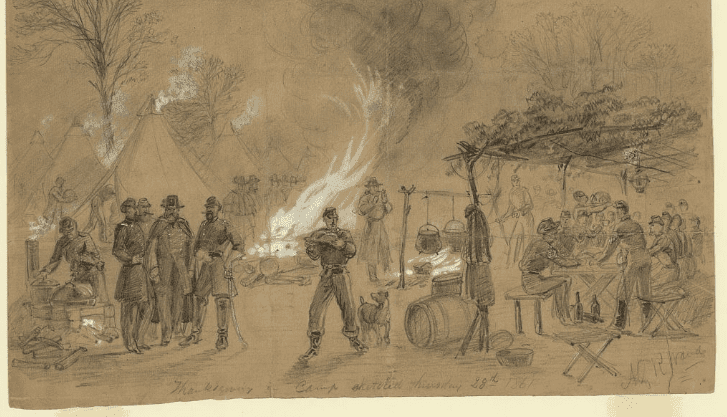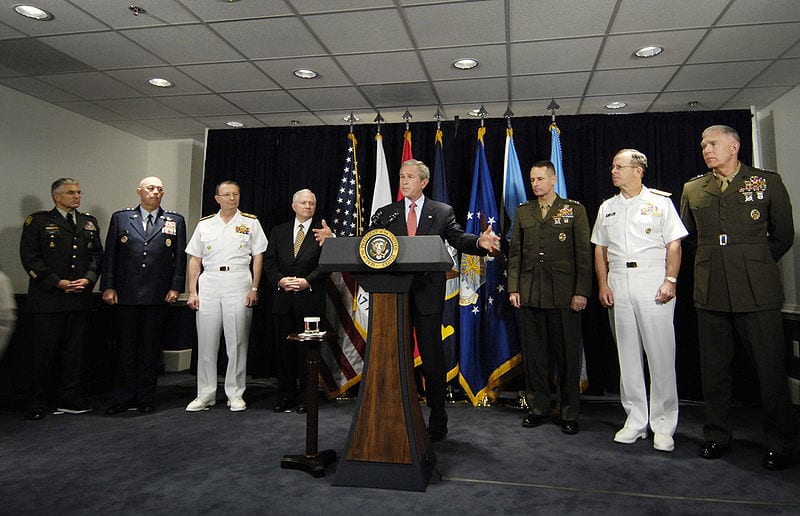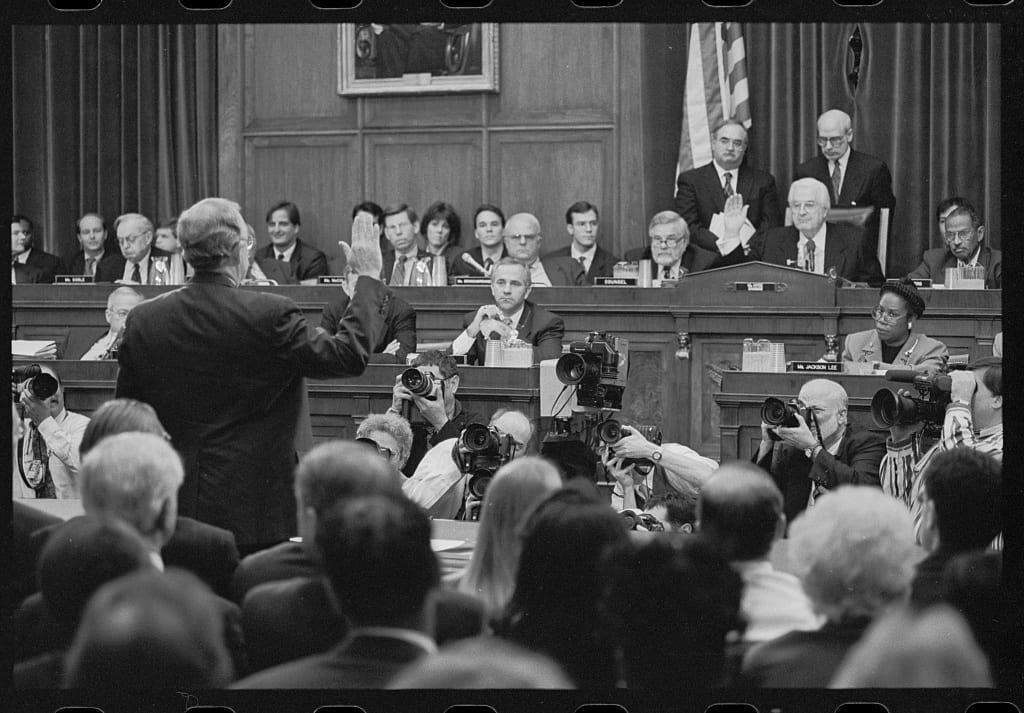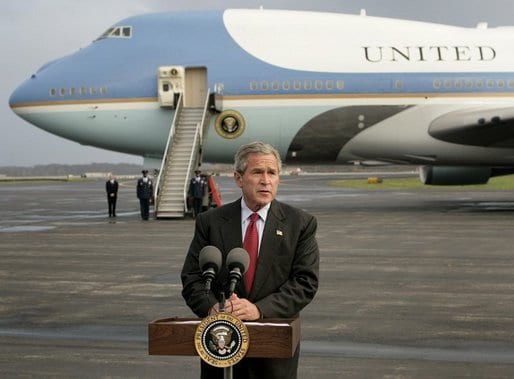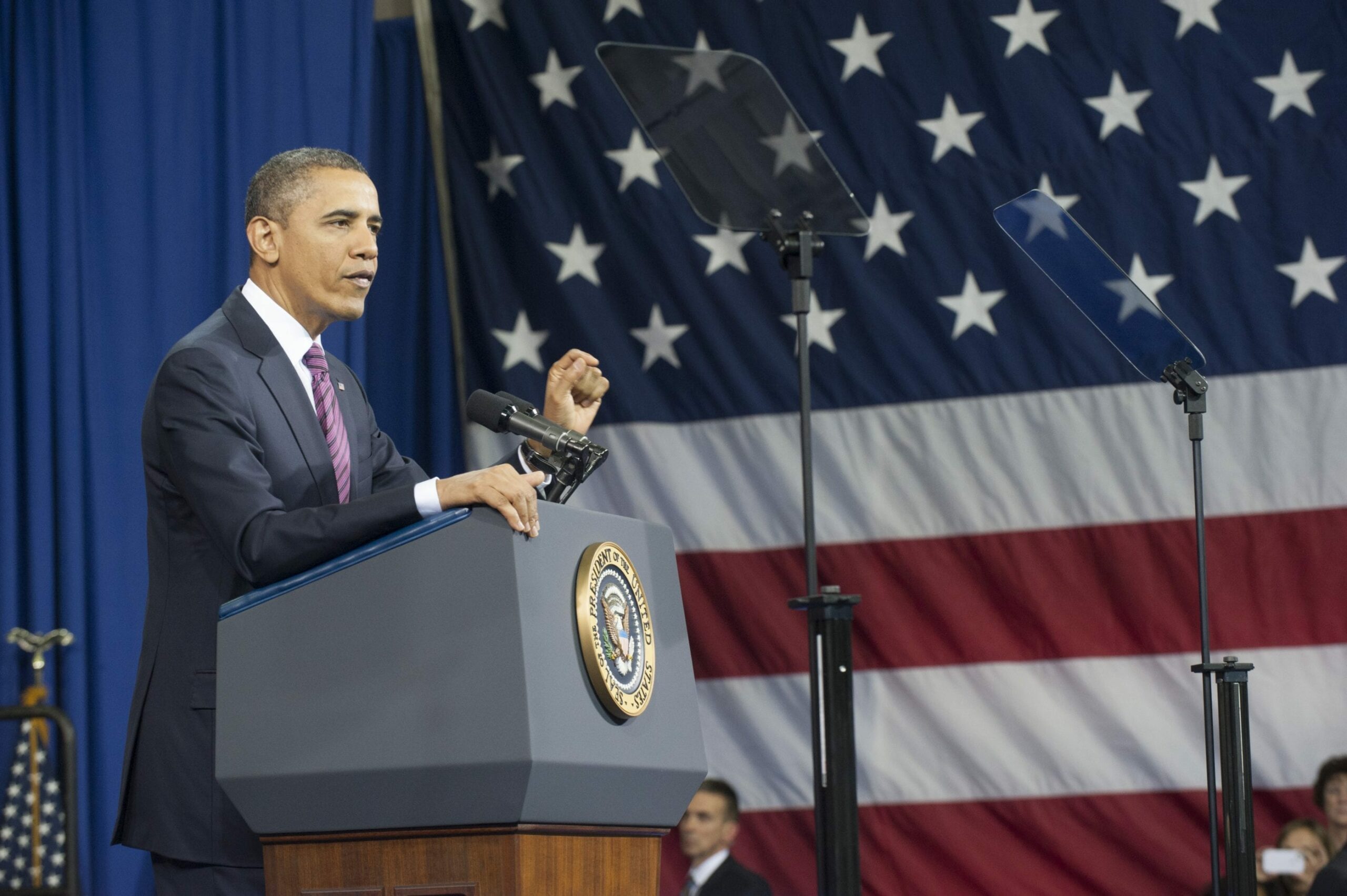


No related resources
Introduction
May a state deny its college scholarship funds to students who wish to major in devotional theology, that is, study in preparation to be a minister? Would this denial violate one’s free exercise of religion or would it amount to simply a rational decision about funding state programs, such as including some majors (e.g., engineering) and excluding others (e.g., physical education)? Chief Justice William H. Rehnquist relates the facts in his opinion for the Court, which decided 7-2 that the Washington State law did not violate the First Amendment’s Free Exercise Clause by denying the funding. Justice Antonin Scalia objected that excluding devotional theology from a state program violated the Court’s earlier free exercise decisions, such as Church of the Lukumi Babalu Aye, Inc. v. Hialeah.
Source: 540 U.S. 712 (2004), https://www.law.cornell.edu/supct/html/02-1315.ZS.html. We include the Chief Justice Rehnquist’s opinion for the court and omit the dissents of Justices Scalia and Clarence Thomas. Footnotes added by the editors are preceded by “Ed. note.”
Chief Justice Rehnquist delivered the opinion of the Court.
The State of Washington established the Promise Scholarship Program to assist academically gifted students with postsecondary education expenses. In accordance with the state constitution, students may not use the scholarship at an institution where they are pursuing a degree in devotional theology. We hold that such an exclusion from an otherwise inclusive aid program does not violate the Free Exercise Clause of the First Amendment.
The Washington State Legislature . . . created the Promise Scholarship Program, which provides a scholarship, renewable for one year, to eligible students for postsecondary education expenses. Students may spend their funds on any education-related expense, including room and board. . . . The scholarship was worth $1,125 for academic year 1999–2000 and $1,542 for 2000–2001.
To be eligible for the scholarship, a student must meet academic, income, and enrollment requirements. A student must graduate from a Washington public or private high school and either graduate in the top 15% of his graduating class, or attain on the first attempt a cumulative score of 1,200 or better on the Scholastic Assessment Test I or a score of 27 or better on the American College Test. The student’s family income must be less than 135% of the state’s median. Finally, the student must enroll “at least half time in an eligible postsecondary institution in the State of Washington,” and may not pursue a degree in theology at that institution while receiving the scholarship. (“No aid shall be awarded to any student who is pursuing a degree in theology.”) Private institutions, including those religiously affiliated, qualify as “eligible postsecondary institution[s]” if they are accredited by a nationally recognized accrediting body. A “degree in theology” is not defined in the statute, but, as both parties concede, the statute simply codifies the state’s constitutional prohibition on providing funds to students to pursue degrees that are “devotional in nature or designed to induce religious faith.” . . .
Respondent,[1] Joshua Davey, was awarded a Promise Scholarship, and chose to attend Northwest College. Northwest is a private, Christian college affiliated with the Assemblies of God denomination, and is an eligible institution under the Promise Scholarship Program. Davey had “planned for many years to attend a Bible college and to prepare [himself] through that college training for a lifetime of ministry, specifically as a church pastor.” To that end, when he enrolled in Northwest College, he decided to pursue a double major in pastoral ministries and business management/administration. There is no dispute that the pastoral ministries degree is devotional and therefore excluded under the Promise Scholarship Program.
At the beginning of the 1999-2000 academic year, Davey met with Northwest’s director of financial aid. He learned for the first time at this meeting that he could not use his scholarship to pursue a devotional theology degree. He was informed that to receive the funds appropriated for his use, he must certify in writing that he was not pursuing such a degree at Northwest. He refused to sign the form and did not receive any scholarship funds.
Davey then brought an action under 42 U.S.C. § 1983 against various state officials (hereinafter state) in the district court for the Western District of Washington to enjoin the state from refusing to award the scholarship solely because a student is pursuing a devotional theology degree, and for damages. . . . The district court rejected Davey’s constitutional claims and granted summary judgment in favor of the state.
A divided panel of the United States Court of Appeals for the Ninth Circuit reversed. The court concluded that the state had singled out religion for unfavorable treatment and thus under our decision in Church of Lukumi Babalu Aye, Inc. v. Hialeah, 508 U.S. 520 (1993),[2] the state’s exclusion of theology majors must be narrowly tailored to achieve a compelling state interest. Finding that the state’s own antiestablishment concerns were not compelling, the court declared Washington’s Promise Scholarship Program unconstitutional. We granted certiorari,[3] and now reverse.
The Religion Clauses of the First Amendment provide: “Congress shall make no law respecting an establishment of religion, or prohibiting the free exercise thereof.” These two clauses, the Establishment Clause and the Free Exercise Clause, are frequently in tension. Yet we have long said that “there is room for play in the joints” between them. Walz v. Tax Commission of City of New York, 397 U.S. 664, 669 (1970). In other words, there are some state actions permitted by the Establishment Clause, but not required by the Free Exercise Clause.
This case involves that “play in the joints” described above. Under our Establishment Clause precedent, the link between government funds and religious training is broken by the independent and private choice of recipients. See Zelman v. Simmons-Harris, 536 U.S. 639, 652 (2002).[4] As such, there is no doubt that the state could, consistent with the federal Constitution, permit Promise Scholars to pursue a degree in devotional theology, and the state does not contend otherwise. The question before us, however, is whether Washington, pursuant to its own constitution,[5] which has been authoritatively interpreted as prohibiting even indirectly funding religious instruction that will prepare students for the ministry, can deny them such funding without violating the Free Exercise Clause.
Davey urges us to answer that question in the negative. He contends that under the rule we enunciated in Church of Lukumi Babalu Aye, Inc. v. Hialeah the program is presumptively unconstitutional because it is not facially[6] neutral with respect to religion.[7] We reject his claim of presumptive unconstitutionality, however; to do otherwise would extend the Lukumi line of cases well beyond not only their facts but their reasoning. In Lukumi, the city of Hialeah made it a crime to engage in certain kinds of animal slaughter. We found that the law sought to suppress ritualistic animal sacrifices of the Santeria religion. In the present case, the state’s disfavor of religion (if it can be called that) is of a far milder kind. It imposes neither criminal nor civil sanctions on any type of religious service or rite. It does not deny to ministers the right to participate in the political affairs of the community. And it does not require students to choose between their religious beliefs and receiving a government benefit.[8] The state has merely chosen not to fund a distinct category of instruction.
Justice Scalia argues, however, that generally available benefits are part of the “baseline against which burdens on religion are measured.” Because the Promise Scholarship Program funds training for all secular professions, Justice Scalia contends the state must also fund training for religious professions. But training for religious professions and training for secular professions are not fungible. Training someone to lead a congregation is an essentially religious endeavor. Indeed, majoring in devotional theology is akin to a religious calling as well as an academic pursuit. And the subject of religion is one in which both the United States and state constitutions embody distinct views—in favor of free exercise, but opposed to establishment—that find no counterpart with respect to other callings or professions. That a state would deal differently with religious education for the ministry than with education for other callings is a
product of these views, not evidence of hostility toward religion.
Even though the differently worded Washington Constitution draws a more stringent line than that drawn by the United States Constitution, the interest it seeks to further is scarcely novel. In fact, we can think of few areas in which a state’s antiestablishment interests come more into play. Since the founding of our country, there have been popular uprisings against procuring taxpayer funds to support church leaders, which was one of the hallmarks of an “established” religion.
Most states that sought to avoid an establishment of religion around the time of the founding placed in their constitutions formal prohibitions against using tax funds to support the ministry. The plain text of these constitutional provisions prohibited any tax dollars from supporting the clergy. We have found nothing to indicate, as Justice Scalia contends, that these provisions would not have applied so long as the state equally supported other professions or if the amount at stake was de minimis.[9] That early state constitutions saw no problem in explicitly excluding only the ministry from receiving state dollars reinforces our conclusion that religious instruction is of a different ilk.
Far from evincing the hostility toward religion which was manifest in Lukumi, we believe that the entirety of the Promise Scholarship Program goes a long way toward including religion in its benefits. The program permits students to attend pervasively religious schools, so long as they are accredited. As Northwest advertises, its “concept of education is distinctly Christian in the evangelical sense.” It prepares all of its students, “through instruction, through modeling, [and] through [its] classes, to use … the Bible as their guide, as the truth,” no matter their chosen profession. And under the Promise Scholarship Program’s current guidelines, students are still eligible to take devotional theology courses. Davey notes all students at Northwest are required to take at least four devotional courses, “Exploring the Bible,” “Principles of Spiritual Development,” “Evangelism in the Christian Life,” and “Christian Doctrine,” and some students may have additional religious requirements as part of their majors.
In short, we find neither in the history or text of Article I, §11 of the Washington Constitution, nor in the operation of the Promise Scholarship Program, anything that suggests animus towards religion. Given the historic and substantial state interest at issue, we therefore cannot conclude that the denial of funding for vocational religious instruction alone is inherently constitutionally suspect.
Without a presumption of unconstitutionality, Davey’s claim must fail. The state’s interest in not funding the pursuit of devotional degrees is substantial and the exclusion of such funding places a relatively minor burden on Promise Scholars. If any room exists between the two Religion Clauses, it must be here. We need not venture further into this difficult area in order to uphold the Promise Scholarship Program as currently operated by the State of Washington.
The judgment of the Court of Appeals is therefore
- 1. Ed. note: a defendant in a law suit
- 2. Ed. note: Church of Lukumi Babalu Aye, Inc. v. City of Hialeah
- 3. Ed. note: A Latin word meaning “to be informed” or “we wish to be informed,” certiorari is an order of a higher court to review a lower court decision. “Certiorari” was the first word of such orders when they were written in Latin.
- 4. Ed. note: Zelman v. Simmons-Harris
- 5. The relevant provision of the Washington Constitution, Art. I, §11, states: “Religious Freedom. Absolute freedom of conscience in all matters of religious sentiment, belief and worship, shall be guaranteed to every individual, and no one shall be molested or disturbed in person or property on account of religion; but the liberty of conscience hereby secured shall not be so construed as to excuse acts of licentiousness or justify practices inconsistent with the peace and safety of the state. No public money or property shall be appropriated for or applied to any religious worship, exercise or instruction, or the support of any religious establishment.”
- 6. Ed. note: on the face of it
- 7. Davey, relying on Rosenberger v. Rector and Visitors of Univ. of Va., 515 U.S. 819 (1995), contends that the Promise Scholarship Program is an unconstitutional viewpoint restriction on speech. But the Promise Scholarship Program is not a forum for speech. . . .
- 8. Promise Scholars may still use their scholarship to pursue a secular degree at a different institution from where they are studying devotional theology.
- 9. Ed. note: too unimportant to merit consideration
Inaugural Address (2005)
January 20, 2005
Conversation-based seminars for collegial PD, one-day and multi-day seminars, graduate credit seminars (MA degree), online and in-person.
